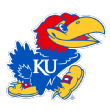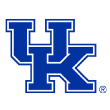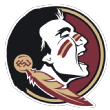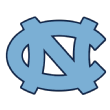-
Rivals Camp Series2024 Rivals Camp Series 2023 Rivals Camp Series 2023 Next Gen camp series 2022 Rivals Camp Series 2021 Rivals Camp Series 2020 Rivals Camp Series 2019 Rivals Camp Series 2018 Rivals Camp Series 2017 Rivals Camp Series 2017 Rivals New Speed Combines 2017 Rivals Camp Series - Videos Underclassman Questionnaire
Colleges
- AAC
- ACC
- Big 12
- Big East
- Big Ten
- Pac-12
- SEC
- Atlantic 10
- Conference USA
- Independents
- Junior College
- Mountain West
- Sun Belt
- MAC
- More
- Navy
- UAB
- Tulsa
- UTSA
- Charlotte
- Florida Atlantic
- Temple
- Rice
- East Carolina
- USF
- SMU
- North Texas
- Tulane
- Memphis
- Miami
- Louisville
- Virginia
- Syracuse
- Wake Forest
- Duke
- Boston College
- Virginia Tech
- Georgia Tech
- Pittsburgh
- North Carolina
- North Carolina State
- Clemson
- Florida State
- Cincinnati
- BYU
- Houston
- Iowa State
- Kansas State
- Kansas
- Texas
- Oklahoma State
- TCU
- Texas Tech
- Baylor
- Oklahoma
- UCF
- West Virginia
- Wisconsin
- Penn State
- Ohio State
- Purdue
- Minnesota
- Iowa
- Nebraska
- Illinois
- Indiana
- Rutgers
- Michigan State
- Maryland
- Michigan
- Northwestern
- Arizona State
- Oregon State
- UCLA
- Colorado
- Stanford
- Oregon
- Arizona
- California
- Washington
- USC
- Utah
- Washington State
- Texas A&M
- Auburn
- Mississippi State
- Kentucky
- South Carolina
- Arkansas
- Florida
- Missouri
- Ole Miss
- Alabama
- LSU
- Georgia
- Vanderbilt
- Tennessee
- Louisiana Tech
- New Mexico State
- Middle Tennessee
- Western Kentucky
- UTEP
- Florida International University
High School
- West
- Midwest
- Northeast
- Southeast
- Other
- Alaska
- Arizona
- California
- Colorado
- Nevada
- New Mexico
- Northern California
- Oregon
- Southern California Preps
- Washington
- Edgy Tim
- Indiana
- Kansas
- Nebraska
- Iowa
- Michigan
- Minnesota
- Missouri
- Oklahoma Varsity
- Texas Basketball
- Texas
- Wisconsin
- Delaware
- Maryland
- New Jersey Basketball
- New Jersey
- New York City Basketball
- Ohio
- Pennsylvania
- Greater Cincinnati
- Virginia
- West Virginia Preps
ADVERTISEMENT
Install the app
How to install the app on iOS
Follow along with the video below to see how to install our site as a web app on your home screen.
Note: This feature may not be available in some browsers.
You are using an out of date browser. It may not display this or other websites correctly.
You should upgrade or use an alternative browser.
You should upgrade or use an alternative browser.
ESPN awards
- Thread starter ExitFlagger
- Start date
I hate when people link to pay sites. We get it, you're a big time rich guy.
I'm gonna start a thread linking to a video on Pornhub Premium that you can't open.
I'm gonna start a thread linking to a video on Pornhub Premium that you can't open.
We aren’t rich. We’re Big 12 fans. We were forced to become premium members just so we could watch our teams play. Damn the +.I hate when people link to pay sites. We get it, you're a big time rich guy.
I'm gonna start a thread linking to a video on Pornhub Premium that you can't open.
I would much rather pay for a pornhub subscription than ESPN+I hate when people link to pay sites. We get it, you're a big time rich guy.
I'm gonna start a thread linking to a video on Pornhub Premium that you can't open.
We aren’t rich. We’re Big 12 fans. We were forced to become premium members just so we could watch our teams play. Damn the +.
Leave the Big 12. The PAC has an idiot commissioner as well.
New Western Conference:
West:
Washington
Oregon
Stanford
UCLA
USC
Arizona
Arizona State
East:
Texas
TCU
Texas Tech
Baylor
Oklahoma
Oklahoma State
Kansas
We aren’t rich. We’re Big 12 fans. We were forced to become premium members just so we could watch our teams play. Damn the +.
oh shit, that's right. Forgot about that. Sorry about that, we live in a BS world where you have to pay to watch Kansas play but I get to see DePaul play for free 30 ****ing times per season.

Player of the Year: Luka Garza, Iowa Hawkeyes
This is one of the closest Wooden Award races in recent memory, with Garza and Dayton's Toppin as the two clear-cut favorites for the past few weeks. For me, it comes down to Garza's consistency and production in the deepest conference in the country. Garza scored fewer than 20 points in only one Big Ten game all season, back at the beginning of January against Nebraska -- and he finished with 16 points and 18 rebounds in that one.
Garza averaged more points, rebounds and blocks than Toppin, and it's hard to argue that Toppin's numbers would be improved if he played in the Big Ten as opposed to the Atlantic 10. Garza is ahead of Toppin, according to KenPom's Player of the Year ratings, and is above him in adjusted points above replacement player at barttorvik.com. Garza is averaging more points than any Big Ten player since Shawn Respert in 1994-95 and more combined points and rebounds than anyone in an even longer stretch. He's putting up historically impressive numbers in by far the best league in the country. That's good enough for me.
Dayton Flyers: Toppin was a close second to Garza, and I'll be honest: Toppin's dunking exhibition against George Washington last weekend gave me second thoughts about my Garza selection. He has gone from a barely recruited high school player to an under-the-radar gem to one of the best players in the country and a surefire NBA lottery pick. Not a bad few years for Toppin.

Coach of the Year: Anthony Grant, Dayton
The field has been whittled as the season progressed, but Dayton's season has been one of the biggest stories of the campaign. The Flyers have just two losses, both on neutral courts and both in overtime, against Kansas and Colorado. They were picked third in the Atlantic 10 in the preseason and were poised for a 1-seed in the NCAA tournament. It's a remarkable story.
Grant was fired at Alabama after six middling seasons in Tuscaloosa, spent a few years on Billy Donovan's staff with the Oklahoma City Thunder, then returned to college with Dayton. After two seasons in which he went a combined 35-29, the Flyers emerged as one of the best teams in the country. Opposing coaches say Grant has installed some impressive tweaks to Dayton's offense and recruited a balanced and versatile roster.
Runner-up -- Brian Dutcher, San Diego State Aztecs: It's possible to make the case that Dutcher has done a better job managing his roster than Grant, given that he has seamlessly weaved two graduate transfers, a sit-out transfer and a few returnees into a Mountain West juggernaut this season. He also kept things rolling while Nathan Mensah, the team's starting center, was out with an illness.

Freshman of the Year: Vernon Carey Jr., Duke Blue Devils
It wasn't a banner season for freshmen across the country. James Wiseman played just three college games, Cole Anthony missed the entire middle third of the season with an injury, Anthony Edwards is going to miss the NCAA tournament, etc.
But Carey has been dominant when he has been on the floor. He has had some issues with foul trouble and has played fewer than 20 minutes in a handful of games, but very few defenses have been able to contain him. Carey should have been ACC Player of the Year ahead of teammate Tre Jones, but Duke chose to nominate Jones even though Carey received more All-ACC votes. Carey ranks in the top five of the ACC in offensive rebounding percentage, defensive rebounding percentage and free throw rate, and he is one of the most efficient offensive players in the country.
Runner-up -- Precious Achiuwa, Memphis Tigers: There are a few good candidates for this spot, from a slew of Pac-12 big men (led by USC's Onyeka Okongwu) to Georgia's Edwards, but Achiuwa has been arguably the best player in the American Athletic Conference, despite Memphis' up-and-down form. He has had to shoulder much of the offensive load with Wiseman playing only three games and D.J. Jeffries missing most of conference play, but he has found ways to be productive and remain efficient, all while playing out of position, for the most part.

Defensive Player of the Year: Marcus Garrett, Kansas Jayhawks
Mark Vital, Baylor Bears:Another versatile defender for one of the best defensive teams in the country, Vital plays an undersized power forward role for Scott Drew's team and excels. He's second in the Big 12 in steal percentage, can block shots, seems to take a charge every other possession and buys into the team defense concept.

Small-school Coach of the Year: Steve Forbes, East Tennessee State Buccaneers
While East Tennessee State's terrific season hasn't been unexpected, the Bucs were arguably the best bet for a mid-major first-round upset, and Forbes has them rolling. He has won 130 games in five seasons in Johnson City and was poised for his second NCAA tournament appearance in the past four seasons. They're an experienced and versatile team that won at LSU in a nonconference game and then navigated a very good Southern Conference.
Runner-up -- Kyle Keller, Stephen F. Austin Lumberjacks: Well, he beat Duke at Cameron Indoor Stadium, so that's a huge feather in his cap. But Keller's Lumberjacks also were picked fourth in the Southland Conference and proceeded to run roughshod over the league, finishing 19-1 and winning their final 15 games of the regular season.

Breakout star: Immanuel Quickley
A former five-star recruit, Quickley always had the talent but didn't have the role to really become a go-to offensive player. As a freshman, Quickley was behind Ashton Hagans and one-and-done wings Tyler Herro and Keldon Johnson on the perimeter, and then five-star guard Tyrese Maxey entered the program this season and dropped 26 points in his first game.
But something flipped in late December, and Quickley became not only the go-to-guy for the Wildcats but the best player in the SEC. Along with Nick Richards, Quickley was the spark to Kentucky's hot stretch in conference play and is the player John Calipari counts on in big moments. Before a foul-shortened outing against Florida in the season finale, Quickley averaged about 19 points and shot better than 46% from 3-point range in his past 19 games.
Runner-up -- Daniel Oturu, Minnesota Golden Gophers: Garza received most of the hype in the Big Ten when it came to big men emerging on the national scene, but Oturu wasn't far behind in terms of production. He was a double-double machine and was also one of the most efficient offensive players in the conference. The Golden Gophers struggled down the stretch or he likely would have received far more publicity. Also worth consideration here are Gonzaga's Filip Petrusev and Arkansas' Mason Jones.

Biggest surprise: Florida State Seminoles
At ACC media day in Charlotte in October, I asked coach Leonard Hamilton about the Seminoles being perennially underrated. Florida State was picked in the middle of the pack of the ACC despite winning 29 games last season and reaching the Elite Eight two years ago. Hamilton's response? "Of course we will [be better than people think]. We do this every year. ... It won't be anything different."
Hamilton was right. Florida State won the ACC regular-season title and was headed for a top-2 seed in the NCAA tournament. Devin Vassell emerged as a first-round pick and Trent Forrest cemented himself as one of the better two-way players in the country.
Runner-up -- Creighton Bluejays: Picked seventh in the Big East heading into the season, the Bluejays had a dominant February to forge a tie at the top of the conference standings and earn a share of the regular-season title. There were very few teams nationally playing as well as Creighton down the stretch. Penn State, Rutgers, BYU and West Virginia are also worth a shoutout.

Biggest disappointment: North Carolina Tar Heels
There are the usual caveats: Cole Anthony got hurt and only one player played every game for the Tar Heels. But still, North Carolina was a preseason top-10 team and was expected to compete for a national championship with Anthony, five-star Armando Bacot and two graduate transfers joining a team that brought back Garrison Brooks, Brandon Robinsonand not much else from last season's 29-win team.
Well, the season fell apart quickly. Anthony got hurt, the grad transfers didn't make the expected impact and North Carolina finished with the bottom seed in the ACC tournament. It was a campaign filled with injuries and infamous news conference quotes from Roy Williams and bereft of many highlights.
Runner-up -- Washington Huskies: You could maybe make the case for Memphis here, but the Tigers did remain in the mix for an at-large bid despite Wiseman's departure and Jeffries' injury. Washington, meanwhile, brought in five-stars Isaiah Stewart and Jaden McDaniels and finished at the bottom of the Pac-12. Moreover, they had issues beyond winning and losing, with Quade Green being ruled academically ineligible midway through the season.
All-America teams
First team
Luka Garza, Iowa: My pick to win the Wooden Award. Just a dominant season from start to finish.
Obi Toppin, Dayton: He had three dunks in the regular-season finale -- all in succession -- that could win Dunk of the Year awards. He's a nonstop highlight reel and has spearheaded an elite Dayton offense.
Devon Dotson, Kansas: Amid all the Udoka Azubuike love over the past few weeks, this was a terrific sophomore season for Dotson. No. 1 in KenPom's Player of the Year race and the only player in the country at least 5.0 adjusted points above replacement at both ends of the floor.
Payton Pritchard, Oregon Ducks: One of the most clutch players in college basketball, Pritchard has taken over as the Ducks' go-to-guy while finding ways to remain efficient and increase his assist rate. He simply gets it done in big spots.
Udoka Azubuike, Kansas: Perhaps the most valuable player in the country, Azubuike is a unique big man with few peers in the sport in terms of sheer physical dominance. He had the best game of his career in the season's biggest game against Baylor: 23 points, 19 rebounds, three blocks.
Second team
Markus Howard, Marquette Golden Eagles:The Golden Eagles cratered down the stretch, but Howard continued to put up outrageous numbers. He finished the season dropping at least 30 points in five straight games and has somehow improved his offensive efficiency from a season ago. He's college basketball's must-see player this season.
Myles Powell, Seton Hall Pirates: He won the Big East Player of the Year award ahead of Howard, and while his offensive percentages have taken a dip since last season, he's still a dynamic player who can get hot to a level that maybe only Howard can match. He was good enough to carry the Pirates in March.
Vernon Carey, Duke: He's the best freshman in the country and an unstoppable offensive force when he's on the floor. He had bouts of inconsistency down the stretch but finished the season with 25 points and 10 boards against North Carolina.
Malachi Flynn, San Diego State: The former Washington State transfer immediately took the reins of the San Diego State offense this season and carried the Aztecs to a 28-1 season. Flynn is tough to guard one-on-one and showed his ability to take over a game with 36 points against Nevada in the regular-season finale.
Cassius Winston, Michigan State Spartans:Winston won't win the Wooden Award as projected in the preseason, but he finished the season on a tear and seemed primed to carry the Spartans to another Final Four. He scored at least 20 points in four of his past five games while dishing out at least six assists in all five. Winston is unafraid to take -- and make -- a big shot.
Sorry, I missed it,can you repeat the "biggest disappointment" for me again. TIA
Player of the Year: Luka Garza, Iowa Hawkeyes
This is one of the closest Wooden Award races in recent memory, with Garza and Dayton's Toppin as the two clear-cut favorites for the past few weeks. For me, it comes down to Garza's consistency and production in the deepest conference in the country. Garza scored fewer than 20 points in only one Big Ten game all season, back at the beginning of January against Nebraska -- and he finished with 16 points and 18 rebounds in that one.
Garza averaged more points, rebounds and blocks than Toppin, and it's hard to argue that Toppin's numbers would be improved if he played in the Big Ten as opposed to the Atlantic 10. Garza is ahead of Toppin, according to KenPom's Player of the Year ratings, and is above him in adjusted points above replacement player at barttorvik.com. Garza is averaging more points than any Big Ten player since Shawn Respert in 1994-95 and more combined points and rebounds than anyone in an even longer stretch. He's putting up historically impressive numbers in by far the best league in the country. That's good enough for me.
Dayton Flyers: Toppin was a close second to Garza, and I'll be honest: Toppin's dunking exhibition against George Washington last weekend gave me second thoughts about my Garza selection. He has gone from a barely recruited high school player to an under-the-radar gem to one of the best players in the country and a surefire NBA lottery pick. Not a bad few years for Toppin.

Coach of the Year: Anthony Grant, Dayton
The field has been whittled as the season progressed, but Dayton's season has been one of the biggest stories of the campaign. The Flyers have just two losses, both on neutral courts and both in overtime, against Kansas and Colorado. They were picked third in the Atlantic 10 in the preseason and were poised for a 1-seed in the NCAA tournament. It's a remarkable story.
Grant was fired at Alabama after six middling seasons in Tuscaloosa, spent a few years on Billy Donovan's staff with the Oklahoma City Thunder, then returned to college with Dayton. After two seasons in which he went a combined 35-29, the Flyers emerged as one of the best teams in the country. Opposing coaches say Grant has installed some impressive tweaks to Dayton's offense and recruited a balanced and versatile roster.
Runner-up -- Brian Dutcher, San Diego State Aztecs: It's possible to make the case that Dutcher has done a better job managing his roster than Grant, given that he has seamlessly weaved two graduate transfers, a sit-out transfer and a few returnees into a Mountain West juggernaut this season. He also kept things rolling while Nathan Mensah, the team's starting center, was out with an illness.

Freshman of the Year: Vernon Carey Jr., Duke Blue Devils
It wasn't a banner season for freshmen across the country. James Wiseman played just three college games, Cole Anthony missed the entire middle third of the season with an injury, Anthony Edwards is going to miss the NCAA tournament, etc.
But Carey has been dominant when he has been on the floor. He has had some issues with foul trouble and has played fewer than 20 minutes in a handful of games, but very few defenses have been able to contain him. Carey should have been ACC Player of the Year ahead of teammate Tre Jones, but Duke chose to nominate Jones even though Carey received more All-ACC votes. Carey ranks in the top five of the ACC in offensive rebounding percentage, defensive rebounding percentage and free throw rate, and he is one of the most efficient offensive players in the country.
Runner-up -- Precious Achiuwa, Memphis Tigers: There are a few good candidates for this spot, from a slew of Pac-12 big men (led by USC's Onyeka Okongwu) to Georgia's Edwards, but Achiuwa has been arguably the best player in the American Athletic Conference, despite Memphis' up-and-down form. He has had to shoulder much of the offensive load with Wiseman playing only three games and D.J. Jeffries missing most of conference play, but he has found ways to be productive and remain efficient, all while playing out of position, for the most part.

Defensive Player of the Year: Marcus Garrett, Kansas Jayhawks
Mark Vital, Baylor Bears:Another versatile defender for one of the best defensive teams in the country, Vital plays an undersized power forward role for Scott Drew's team and excels. He's second in the Big 12 in steal percentage, can block shots, seems to take a charge every other possession and buys into the team defense concept.

Small-school Coach of the Year: Steve Forbes, East Tennessee State Buccaneers
While East Tennessee State's terrific season hasn't been unexpected, the Bucs were arguably the best bet for a mid-major first-round upset, and Forbes has them rolling. He has won 130 games in five seasons in Johnson City and was poised for his second NCAA tournament appearance in the past four seasons. They're an experienced and versatile team that won at LSU in a nonconference game and then navigated a very good Southern Conference.
Runner-up -- Kyle Keller, Stephen F. Austin Lumberjacks: Well, he beat Duke at Cameron Indoor Stadium, so that's a huge feather in his cap. But Keller's Lumberjacks also were picked fourth in the Southland Conference and proceeded to run roughshod over the league, finishing 19-1 and winning their final 15 games of the regular season.

Breakout star: Immanuel Quickley
A former five-star recruit, Quickley always had the talent but didn't have the role to really become a go-to offensive player. As a freshman, Quickley was behind Ashton Hagans and one-and-done wings Tyler Herro and Keldon Johnson on the perimeter, and then five-star guard Tyrese Maxey entered the program this season and dropped 26 points in his first game.
But something flipped in late December, and Quickley became not only the go-to-guy for the Wildcats but the best player in the SEC. Along with Nick Richards, Quickley was the spark to Kentucky's hot stretch in conference play and is the player John Calipari counts on in big moments. Before a foul-shortened outing against Florida in the season finale, Quickley averaged about 19 points and shot better than 46% from 3-point range in his past 19 games.
Runner-up -- Daniel Oturu, Minnesota Golden Gophers: Garza received most of the hype in the Big Ten when it came to big men emerging on the national scene, but Oturu wasn't far behind in terms of production. He was a double-double machine and was also one of the most efficient offensive players in the conference. The Golden Gophers struggled down the stretch or he likely would have received far more publicity. Also worth consideration here are Gonzaga's Filip Petrusev and Arkansas' Mason Jones.

Biggest surprise: Florida State Seminoles
At ACC media day in Charlotte in October, I asked coach Leonard Hamilton about the Seminoles being perennially underrated. Florida State was picked in the middle of the pack of the ACC despite winning 29 games last season and reaching the Elite Eight two years ago. Hamilton's response? "Of course we will [be better than people think]. We do this every year. ... It won't be anything different."
Hamilton was right. Florida State won the ACC regular-season title and was headed for a top-2 seed in the NCAA tournament. Devin Vassell emerged as a first-round pick and Trent Forrest cemented himself as one of the better two-way players in the country.
Runner-up -- Creighton Bluejays: Picked seventh in the Big East heading into the season, the Bluejays had a dominant February to forge a tie at the top of the conference standings and earn a share of the regular-season title. There were very few teams nationally playing as well as Creighton down the stretch. Penn State, Rutgers, BYU and West Virginia are also worth a shoutout.

Biggest disappointment: North Carolina Tar Heels
There are the usual caveats: Cole Anthony got hurt and only one player played every game for the Tar Heels. But still, North Carolina was a preseason top-10 team and was expected to compete for a national championship with Anthony, five-star Armando Bacot and two graduate transfers joining a team that brought back Garrison Brooks, Brandon Robinsonand not much else from last season's 29-win team.
Well, the season fell apart quickly. Anthony got hurt, the grad transfers didn't make the expected impact and North Carolina finished with the bottom seed in the ACC tournament. It was a campaign filled with injuries and infamous news conference quotes from Roy Williams and bereft of many highlights.
Runner-up -- Washington Huskies: You could maybe make the case for Memphis here, but the Tigers did remain in the mix for an at-large bid despite Wiseman's departure and Jeffries' injury. Washington, meanwhile, brought in five-stars Isaiah Stewart and Jaden McDaniels and finished at the bottom of the Pac-12. Moreover, they had issues beyond winning and losing, with Quade Green being ruled academically ineligible midway through the season.
All-America teams
First team
Luka Garza, Iowa: My pick to win the Wooden Award. Just a dominant season from start to finish.
Obi Toppin, Dayton: He had three dunks in the regular-season finale -- all in succession -- that could win Dunk of the Year awards. He's a nonstop highlight reel and has spearheaded an elite Dayton offense.
Devon Dotson, Kansas: Amid all the Udoka Azubuike love over the past few weeks, this was a terrific sophomore season for Dotson. No. 1 in KenPom's Player of the Year race and the only player in the country at least 5.0 adjusted points above replacement at both ends of the floor.
Payton Pritchard, Oregon Ducks: One of the most clutch players in college basketball, Pritchard has taken over as the Ducks' go-to-guy while finding ways to remain efficient and increase his assist rate. He simply gets it done in big spots.
Udoka Azubuike, Kansas: Perhaps the most valuable player in the country, Azubuike is a unique big man with few peers in the sport in terms of sheer physical dominance. He had the best game of his career in the season's biggest game against Baylor: 23 points, 19 rebounds, three blocks.
Second team
Markus Howard, Marquette Golden Eagles:The Golden Eagles cratered down the stretch, but Howard continued to put up outrageous numbers. He finished the season dropping at least 30 points in five straight games and has somehow improved his offensive efficiency from a season ago. He's college basketball's must-see player this season.
Myles Powell, Seton Hall Pirates: He won the Big East Player of the Year award ahead of Howard, and while his offensive percentages have taken a dip since last season, he's still a dynamic player who can get hot to a level that maybe only Howard can match. He was good enough to carry the Pirates in March.
Vernon Carey, Duke: He's the best freshman in the country and an unstoppable offensive force when he's on the floor. He had bouts of inconsistency down the stretch but finished the season with 25 points and 10 boards against North Carolina.
Malachi Flynn, San Diego State: The former Washington State transfer immediately took the reins of the San Diego State offense this season and carried the Aztecs to a 28-1 season. Flynn is tough to guard one-on-one and showed his ability to take over a game with 36 points against Nevada in the regular-season finale.
Cassius Winston, Michigan State Spartans:Winston won't win the Wooden Award as projected in the preseason, but he finished the season on a tear and seemed primed to carry the Spartans to another Final Four. He scored at least 20 points in four of his past five games while dishing out at least six assists in all five. Winston is unafraid to take -- and make -- a big shot.
Congrats to UNC!! Great achievement.
I hate when people link to pay sites. We get it, you're a big time rich guy.
I'm gonna start a thread linking to a video on Pornhub Premium that you can't open.
Love PornHub but if you’ve never been to Chaturbate.com you’re missing out!!! Free live cams!!!
I've been waiting on the sequel to pornhub. I finished the first one.Love PornHub but if you’ve never been to Chaturbate.com you’re missing out!!! Free live cams!!!
Similar threads
- Replies
- 22
- Views
- 767
- Replies
- 4
- Views
- 311
- Replies
- 210
- Views
- 6K
- Replies
- 6
- Views
- 238
ADVERTISEMENT

